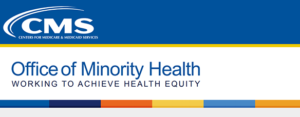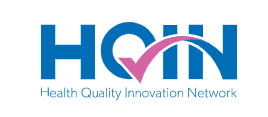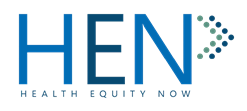June 5, 2023

Highlighting Disparities During National Men’s Health Month
During June, the Centers for Medicare & Medicaid Services Office of Minority Health (CMS OMH) is recognizing National Men’s Health Month by encouraging men from populations that are underserved to prioritize their health and well-being.
Heart disease is the number one cause of death for men of most racial and ethnic groups in the United States, accounting for 1 in every 4 male deaths. Among Medicare fee-for-service (FFS) beneficiaries, men had a higher prevalence of ischemic heart disease (32.3%) than women (22.2%) in 2018. Men from minority populations are often disproportionately affected by heart disease and many of its risk factors, including high blood pressure. According to the CDC, hypertension was more common in Black (58.4%), Asian (51.9%), Hispanic and Latino (50.4%) men from 2015-2018 compared to White men (49.8%). Racial disparities are prevalent not only in heart disease, but also in prostate cancer, which is the second-leading cause of cancer death among males. In 2019, Black men had the highest rate of new cancer diagnoses, followed by White, Hispanic, American Indian and Alaska Native, and Asian and Pacific Islander men.
In addition to promoting men’s physical health this month, CMS OMH is highlighting the importance of men’s mental health. Since men are far less likely to seek mental health treatment than women due to stigma, their mental health concerns often go untreated. In 2021, the suicide rate among males was approximately four times higher than the rate among females. Though men make up 50% of the U.S. population, they represent nearly 80% of suicides.
National Men’s Health Month allows CMS OMH an opportunity to highlight racial and ethnic disparities in men’s health as well as the importance of physical and mental well-being for men of all backgrounds. We encourage you to share the below resources with the men in your community to help them take control of their health this month and all year.
Resources:
- Coverage to Care (C2C) Men Preventive Services Flyer
- Available in 8 languages
- Can help the men you serve take advantage of services available at no cost to them under most health coverage
- C2C Roadmap to Behavioral Health
- Available in 9 languages
- Can help men navigate services relating to behavioral health and substance use disorder services
- Ischemic Heart Disease Disparities in Medicare Fee-for-Service Beneficiaries and Hypertension Disparities in Medicare Fee-for-Service Beneficiaries
- View data snapshots to learn about heart health disparities among Medicare FFS enrollees
- Prostate Cancer Disparities in Medicare Fee-for-Service Beneficiaries
- Download data snapshot which highlights disparities in prostate cancer among Medicare FFS enrollees
- Disparities in Health Care in Medicare Advantage by Race, Ethnicity, and Sex
- Read the stratified report, which summarizes the quality of health care received by Medicare Advantage enrollees nationwide. The report highlights racial and ethnic differences in health care experiences and compares the quality of care between men and women.
- Men’s Health Month webpag
- Visit the U.S. Department of Health and Human Services Office of Minority Health to download resources and social media posts to help raise awareness.





